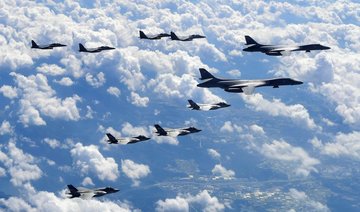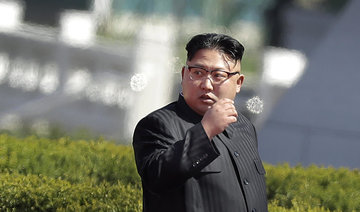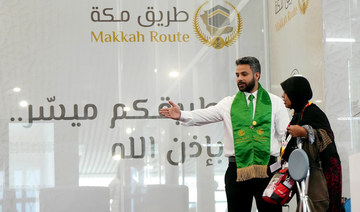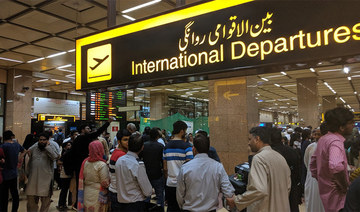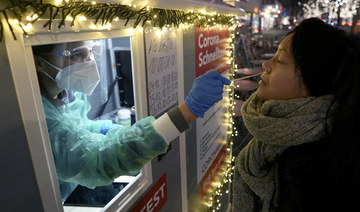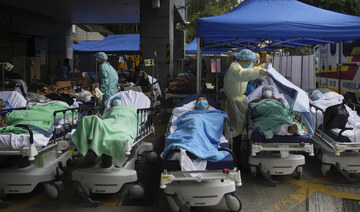SEOUL: The threat of nuclear missile attack by North Korea is accelerating, US Defense Secretary Jim Mattis said Saturday, accusing the North of illegal and unnecessary missile and nuclear programs and pledging to repel any strike.
In remarks in Seoul with South Korean Defense Minister Song Young-moo at his side, Mattis said North Korea engages in “outlaw” behavior and that the US will never accept a nuclear North.
The Pentagon chief added that regardless of what the North might try, it is overmatched by the firepower and cohesiveness of the decades-old US-South Korean alliance.
“North Korea has accelerated the threat that it poses to its neighbors and the world through its illegal and unnecessary missile and nuclear weapons programs,” he said, adding that US-South Korean military and diplomatic collaboration thus has taken on “a new urgency.”
“I cannot imagine a condition under which the United States would accept North Korea as a nuclear power,” Mattis said.
As he emphasized throughout his weeklong Asia trip, which included stops in Thailand and the Philippines, Mattis said diplomacy remains the preferred way to deal with the North.
“With that said,” he added, “make no mistake — any attack on the United States or our allies will be defeated, and any use of nuclear weapons by the North will be met with a massive military response that is effective and overwhelming.”
Mattis’ comments did not go beyond his recent statements of concern about North Korea, although he appeared to inject a stronger note about the urgency of resolving the crisis.
While he accused the North of “outlaw” behavior, he did not mention that President Donald Trump has ratcheted up his own rhetoric. In August, Trump warned the North not to make any more threats against the US, and said that if it did, it would be met with “fire and fury like the world has never seen.”
Song said at the news conference that he and Mattis agreed to further cooperation on strengthening Seoul’s defense capabilities, including lifting warhead payload limits on South Korean conventional missiles and supporting the country’s acquisition of “most advanced military assets.” He offered no specifics and refused to answer when asked whether the discussions included nuclear-powered submarines.
Some South Korean government officials have endorsed the nation getting nuclear-powered submarines amid calls for more military strength. There is a growing concern among the South Korean public that North Korea’s expanding nuclear weapons arsenal, which may soon include an intercontinental ballistic missile that could target the US mainland, would undermine Seoul’s long alliance with Washington.
South Korea’s conservative politicians have also called for the United States to bring back tactical nuclear weapons that were withdrawn from the Korean Peninsula in the 1990s. But Mattis and Song were strongly dismissive of the idea.
“When considering national interest, it’s much better not to deploy them,” said Song, adding that the allies would have “sufficient means” to respond to a North Korean nuclear attack even without placing tactical nuclear weapons in the South. Mattis said current US strategic assets are already providing nuclear deterrence and that the South Korean government has never approached him with the subject of tactical nuclear weapons.
Trump entered office declaring his commitment to solving the North Korea problem, asserting that he would succeed where his predecessors had failed. His administration has sought to increase pressure on Pyongyang through UN Security Council sanctions and other diplomatic efforts, but the North has not budged from its goal of building a full-fledged nuclear arsenal, including missiles capable of striking the US mainland.
If Trump sticks to his pledge to stop the North from being able to threaten the US with a nuclear attack, something will have to give — either a negotiated tempering of the North’s ambitions or a US acceptance of the North as a nuclear power.
The other alternative would be US military action to attempt to neutralize or eliminate the North’s nuclear assets — a move fraught with risk for South Korea, Japan and the US.
Mattis touched off unease in South Korea last month when he told reporters at the Pentagon that the US has military options for North Korea that does not put Seoul at risk. At Saturday’s briefing, Mattis did not offer a direct answer to what those options are or how and when they would be used.
“Our military options as I mentioned are designed to buttress the diplomats’ efforts to maintain a deterrence stance and denuclearize the Korean Peninsula,” he said. While the allies are committed to deterring North Korea, they also need “many different military options that would realistically reduce that threat as low as possible,” Mattis said.
“And yes, we do have those options,” he said.
Pentagon chief says North Korea engages in ‘outlaw’ behavior
Pentagon chief says North Korea engages in ‘outlaw’ behavior
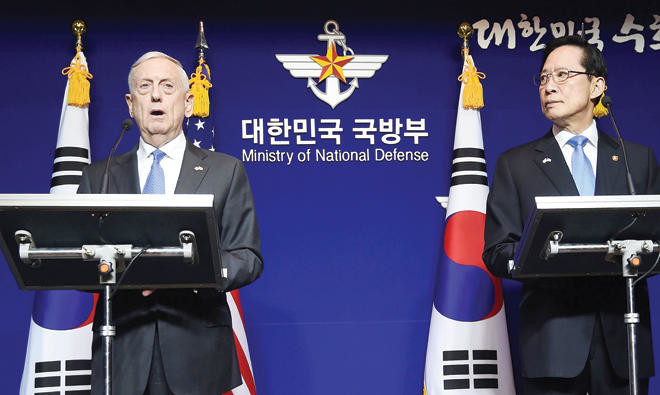
Pakistani envoy lauds Makkah Route Initiative
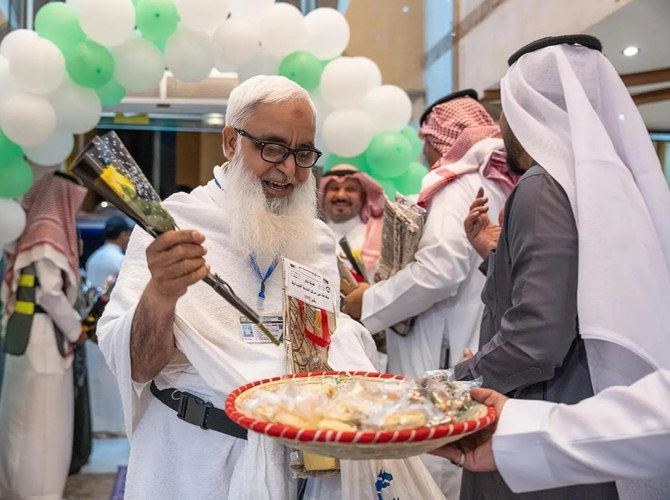
RIYADH: Pakistan’s Ambassador to Saudi Arabia Ahmad Farooq expressed deep appreciation for the Kingdom’s dedication to enhancing the Hajj experience for pilgrims.
He commended the Makkah Route Initiative, highlighting its positive effect on Pakistani pilgrims in previous years and its expansion in 2024 to include Karachi and Islamabad international airports.
Farooq emphasized the program’s role in simplifying travel procedures, making the journey to Makkah “free of hassle, easy and convenient” for Pakistani pilgrims.
The Makkah Route Initiative is one of several projects in the Ministry of Interior’s Pilgrim Experience Program under Saudi Vision 2030.
Now in its sixth year, the initiative involves the collaboration of several entities, such as the General Authority of Civil Aviation, the Zakat, Tax and Customs Authority, and the Saudi Data and Artificial Intelligence Authority, as well as the ministries of foreign affairs, health, media, and Hajj and Umrah.
Services include the issuing of electronic Hajj visas, biometric data collection, completion of passport procedures in special lounges at departure airports, ensuring health requirements are met, and efficient luggage tagging and sorting. After arrival in the Kingdom, pathways are assigned, and partner agencies ensure delivery of pilgrims’ luggage to their accommodation.
Bahrain’s youth rep taps into Kennedy with speech to Arab youth at Dubai media forum
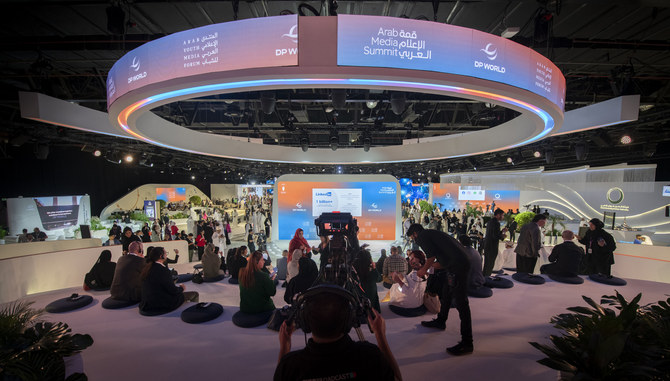
- Youth ‘can craft a better future for us all,’ says Sheikh Nasser Bin Hamad Al-Khalifa
- Praises Gulf leaders ‘who are focused on the next generation rather than the next election’
DUBAI: Sheikh Nasser Bin Hamad Al-Khalifa, Bahrain’s representative for humanitarian work and youth affairs, delivered a sharply defined message to Arab youth and their custodians.
In a speech at the Arab Media Summit, Al-Khalifa echoed the words of former US President John F. Kennedy, saying: “For a better world and a prosperous country, one must ask themselves what I can do for my country rather than what can my country do for me.
“The youth, which make up over 60 percent of our citizens today, is very different than previous generations. They have become the driving force behind certain industries and have taken to adopting certain causes that will craft a better future for us all.
“They are engaged in political and civil societies more than ever before throughout history. They have even managed to become successful in sectors such as journalism, social media in forms of content, podcasts and also showing sharp wit in investments and trade.”
Al-Khalifa, who served in a military academy, said he carries the academy’s message of “in order to serve, you must lead” throughout his life and policies.
“While challenges can occur, as it did during the COVID pandemic, which affected not only economies but personal lives as well, it was a lesson to be learned. We came out of it, and we are at a better place now.
“Challenges are opportunities. Some folk lost a lot during the pandemic, while others progressed, and the difference between the two is that one seized the opportunity to create and further themselves. while others remained still.”
On the subject of open borders and one being a “global citizen,” Al-Khalifa urged the youth and their elders to continue to strive, travel, experience and learn, but to maintain a “moral direction that connects and centers you to who you are: an Arab.”
He added: “We are an Arab ummah, and what does that mean? It is a legacy, it is victories, accomplishments, values that we have carried and learned from our forefathers that we continue to build on today. To take on Western concepts such as ‘global citizen,’ one can be lost. Our identity is Arab first and foremost.
“Our religion, Islam, urged us to read, learn and engage. And that is what we do with other countries as we both compete and cooperate with them.
“Know who you are and where your roots lie. Some societies have become fragmented due to their abandonment of their values. Nowadays, we have Westerners who are enrolling their children in our schools to keep them centered and away from social and moral confusion.
“While it is valid and important to ride the new wave in terms of technology and progress of open borders to make our countries better, I urge fathers and mothers to continue to stress on an upbringing that focuses identity and positive moral values.
“We want to invest in our youth. It is important that they feel seen, valued, trusted and supported and wanted. If we do that, then their stock will never plummet. They are half of our present and all of our future.”
He concluded his speech by saying how blessed the Gulf is to have leaders “who are focused on the next generation rather than the next election,” and offered a prayer to the lives lost in Gaza.
Arab Media Forum opens in Dubai with focus on youth
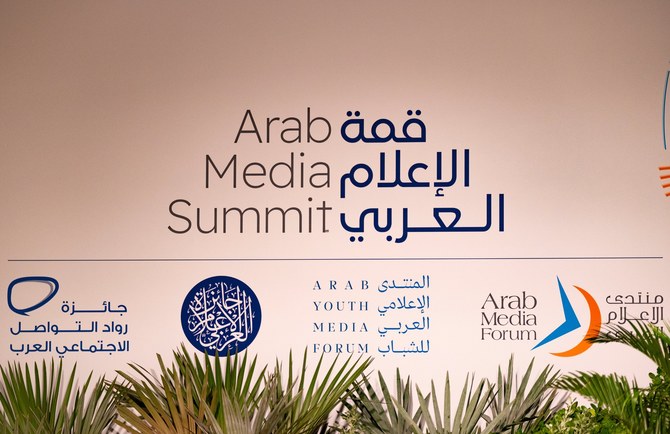
DUBAI: The annual Arab Media Forum launched in Dubai on Monday for a three-day summit involving media leaders and executives from across the region.
This year’s forum is geared toward youth, focusing on arming the next generation of journalists and media professionals with the tools and know-how to thrive in the ever-growing industry in the Arab world.
For the past two decades, the forum has brought together regional and international speakers to discuss the industry’s challenges and impact on Arab societies.
More than 1,000 creative and media students are expected to attend, along with prominent Arab personalities, content creators and global media industry leaders taking part in a range of panel discussions and master classes.
Notable speakers include Sheikh Nasser bin Hamad Al-Khalifa, the king’s representative for humanitarian work and youth affairs in Bahrain; and Dr. Sultan Al-Neyadi, the UAE’s minister of state for youth affairs.
Monday’s schedule includes master classes on Meta, tools for storytelling, interactive media, as well as building personal brands.
Panels and discussions on the opening day cover sports media, the art of directing and redefining storytelling.
Tuesday and Wednesday will feature discussions on key political, economic and technological developments by media personalities, editors in chief, writers and experts from the region and around the world.
The forum will close with an awards ceremony recognizing content creators and journalists in a range of categories.
WHO chief urges countries to quickly seal pandemic deal
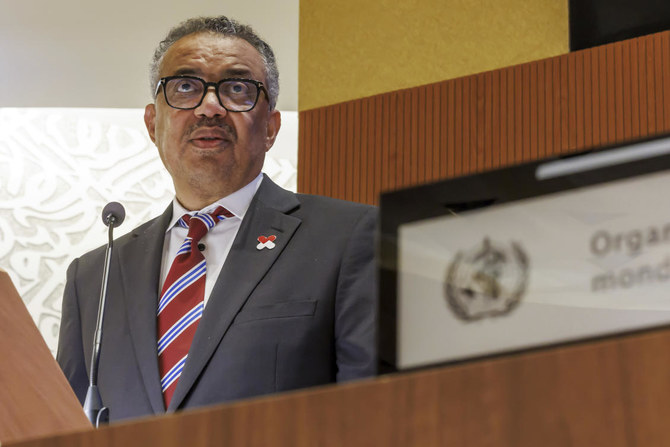
- Scarred by COVID-19, nations have spent two years trying to forge binding commitments on pandemic prevention, preparedness and response
GENEVA: The World Health Organization chief on Monday urged countries to nail down a landmark global agreement on handling of future pandemics after they missed a hard deadline.
Scarred by COVID-19 — which killed millions, shredded economies and crippled health systems — nations have spent two years trying to forge binding commitments on pandemic prevention, preparedness and response.
Negotiators failed to clinch a deal ahead of this week’s World Health Assembly — the annual gathering of WHO’s 194 member states — the deadline for concluding the talks.
WHO chief Tedros Adhanom Ghebreyesus opened the assembly Monday, saying he was confident that an agreement would be secured.
“Of course, we all wish that we had been able to reach a consensus on the agreement in time for this health assembly and crossed the finish line,” he said.
“But I remain confident that you still will, because where there is a will, there is a way.”
Tedros said the task before negotiators had been “immense, technically, legally, and politically,” and that they had been “operating on a very ambitious time line.”
“You have demonstrated a clear commitment to reaching an agreement,” he said, adding that negotiators had “worked long days and nights,” closing meetings as late as 4:00 a.m.
He hailed their dedication to push forward despite “a torrent of misinformation that was undermining your negotiations.”
While missing Friday’s deadline, countries have voiced a commitment to keep pushing for an accord.
Negotiators are due on Tuesday to present the outcome of the talks to the assembly, which runs until June 1, and the assembly will take stock and decide what to do next.
“I know that there remains among you a common will to get this done, so, there must always be a way,” Tedros said.
“Meaning the solution is in your hands,” he stressed.
Parallel talks have also taken place on revising the International Health Regulations, which were first adopted in 1969 and constitute the existing international legally binding framework for responding to public health emergencies around the world.
The proposed amendments to the IHR, including adding more nuance to a system meant to alert countries to potential health emergencies of global concern, might have a better chance of being adopted during this week’s assembly, observers said.
Saudi Arabia focused on promoting energy efficiency: top official
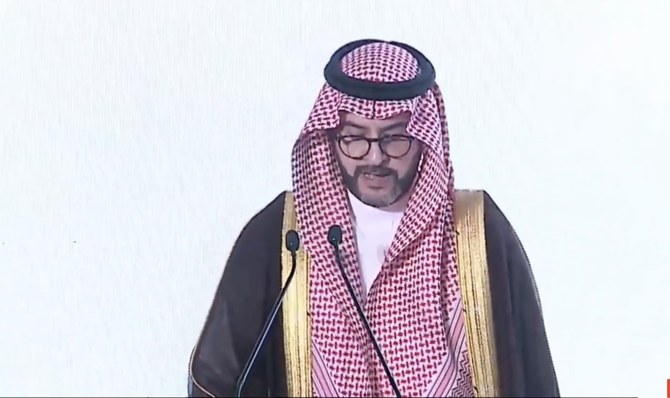
RIYADH: Saudi Arabia’s budding energy efficiency sector has witnessed notable growth with the number of licensed service providers reaching 55 by the end of 2023, says a top official.
As the Kingdom strives to reduce its carbon footprint, with recently amplified goals to achieve net-zero by 2060, the Saudi Energy Efficiency Center is working to aide the nation in realizing these ambitions, Nasser Al- Ghamdi, the CEO of the center noted.
In his inaugural address at the Saudi ESCO forum, the top executive stressed the entity’s role in raising awareness about energy efficiency. He highlighted that 26 universities nationwide have adopted energy efficiency topics and courses in their curricula.



